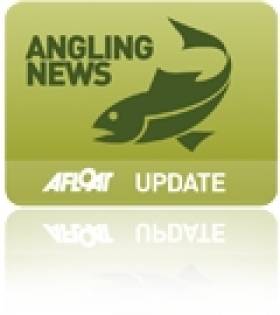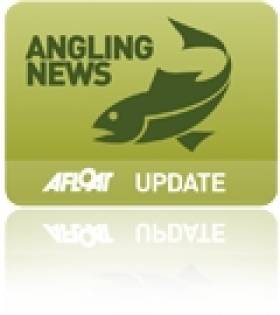Displaying items by tag: Carlow Sports Partnership
Carlow CAC Receives Bursary for Disabled Angling Efforts
#ANGLING - Carlow Coarse Angling Club chair Gerry McStraw was presented last week with a special bursary by Carlow Sports Partnership for the club's efforts in helping disabled anglers to participate in the sport.
According to the Enniscorthy Guardian, McStraw was joined by Carlow CAC PR officer Ian Warburton and treasurer George Quinlan in receiving the money from Carlow Sports Partnership chair Tracey Byrne and Carlow County Council's Thomas Kinsella.
McStraw was recently highlighted on Afloat.ie for his spearheading of the revival of coarse fishing in Ireland.
The bursary will be used to buy equipment essential to running more coarse angling programmes in 2012.
Carlow CAC will also host three of the six weekends for the National Coarse Fishing Federation of Ireland's qualifiers next spring and summer.
Carlow Angler Spearheads Coarse Fishing Revival
#ANGLING - Tuesday's Enniscorthy Guardian writes about the revival of coarse fishing in Ireland, spearheaded by Gerry McStraw, chairman of Carlow Coarse Angling Club.
McStraw runs a tackle and bait business in Graiguecullen on the River Barrow, which has made a comeback after years of heavy poaching, and become a safe environment for families to enjoy.
Bream, hybrids, roach, dace and perch are now in abundance in the river - with bag weights of up to 50 lb of roach possible - while the pike pose a worthy challenge for the determined angler.
Carlow Sports Partnership will award a special bursary to the club on Wednesday 30 November in recognition of its work not only in protecting the river but also in youth development.
The Enniscorthy Guardian has more on the story HERE.

























































